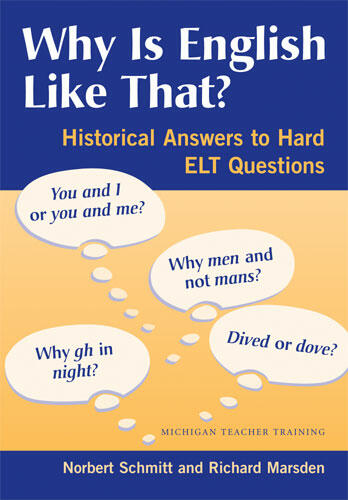Why Is English Like That?
Historical Answers to Hard ELT Questions
Description
Why is "night" spelled with "gh"? Why can't sentences end with prepositions? Why does English have so many words that express the same ideas? Questions like these can be difficult for teachers to answer when they do not know the historical background of the English language. Why Is English Like That? gives teachers a brief and accessible history of the English without assuming any prior knowledge of the subject.
The book outlines the historical events that shaped English; describes how its grammar, vocabulary, spelling, and pronunciation developed over time; and highlights the "quirks" and "exceptions" in English that can be explained on a historical basis. By understanding how the English of today evolved from the English of past times, both teachers and students will be more comfortable with the many conventions of the English language.
Why Is English Like That? also contains reproducible grammar and vocabulary exercises that will help teachers incorporate some of this historical knowledge into classroom activities. This book was written with English language teachers in mind, and the exercises are designed for ESL/EFL students, but it may also be used by teachers in training (L1 and L2).

